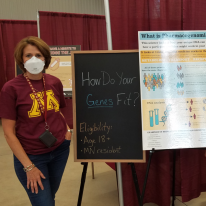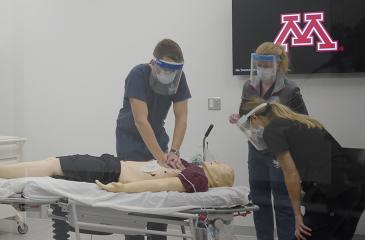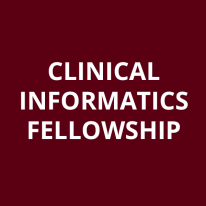One of the goals of OACA is to ensure that our students and trainees are prepared to work and lead in team-based environments. I’d like to share a few innovative examples from the past year.
- The Interprofessional Internship Program recruits community partners to give students an opportunity to work with other health professionals to solve real-world problems. The program is currently in its second year with a cohort of 20 students from across the health sciences.
- The new Center for Interprofessional Health develops new ways to improve interprofessional education, research, practice, and collaboration. The center hosts Better Together: Preparing for Collaborative Practice, a course to help students develop interprofessional communication and collaboration skills. This fall, more than 1,200 students from 19 different degree programs participated in these sessions.
- Last October, M Simulation collaborated with the School of Nursing and School of Social Work on an interprofessional simulation event. Students learned to work across disciplines in different scenarios using standardized patients. Feedback was unanimously positive that this had the benefits of training in a space that was both realistic and a safe space to practice.
Where do you use interprofessional programming in your field? Where do you think we could develop more opportunities for these kinds of activities? Ideas for improvement and innovation are always welcome.
Driving Innovation and Discovery

Write Winning NIH Grants Annual Seminar
Learn to write grant proposals that get funded at this annual, two-day seminar in February 2022 designed for investigators and staff who help support grant writing. National speaker and grant writing expert John D. Robertson, PhD, will address practical and conceptual aspects important to the proposal writing process. Register by Jan. 20.
Advancing Professional Education & Training

Collaboration Insights: A Health Professions Blog for Effective Collaboration
Tune into Collaboration Insights, a blog created for students, faculty, and alumni by Center for Interprofessional Health student interns. It is a hub for information on interprofessional education and collaboration: related skill-building, research, professional spotlights, and podcasts.

Registration for Local CLARION Competition Now Open
The local and national case competition CLARION promotes the development of interprofessional relationships among health professional students through experiential learning opportunities, inspiring systems-level changes focused on achieving health for all. Registration for the local competition is open now through Jan. 24. Health professional students are encouraged to register as soon as possible.
Partnering With Communities

Top 10 Stories of 2021
2021 has been a year full of ups and downs. We have seen remarkable innovations, creative partnerships, rural and global health efforts, and incredible outreach. Here are our top 10 most-read stories from the Office of Academic Clinical Affairs in 2021.
U-Wide Events and Opportunities

"Who Do You Want To Be When You Grow Old? The Path of Purposeful Aging" Book Club Conversation with Richard Leider
Join the Bakken Center for a book conversation with Richard Leider on Jan. 12. He will focus on his newest book, "Who Do You Want To Be When You Grow Old? The Path of Purposeful Aging". He’ll talk about writing the book, how his ideas have evolved over the years, and how to step onto (or stay on) “the path of purposeful aging.”

Reserve Your Research Space NOW for the 2022 MN State Fair
Recruit hundreds of participants within days at the Driven to Discover Research Facility at the Minnesota State Fair. D2D provides turnkey research space for any U of M faculty, staff or student investigator wishing to recruit participants from among the fair’s two million annual visitors—either for on-the-spot research or studies conducted elsewhere. The building annually attracts over 60,000 visitors, with over 25,000 fairgoers enrolling in 2019. Studies recruited at a rate of 162 participants per half-day shift (range 22-402). Funding is available for eligible MCC investigators for next year’s fair. A brief online application is due Jan. 18, 2022.




